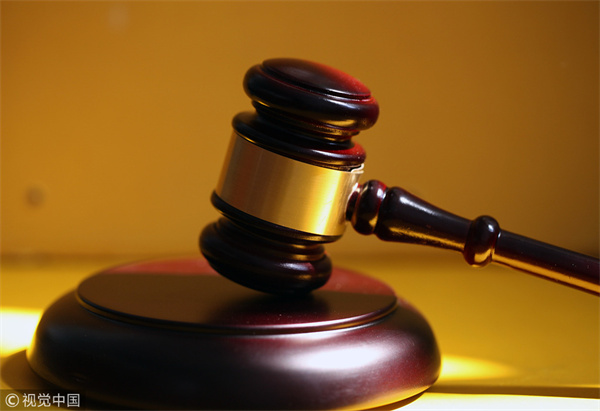Joint action needed to stop environmental crime: Reports

[Photo/VCG]
China's fight against environmental crime is at a critical juncture, with judicial departments seeing a rise in the number of cases over the past five years, according to official reports.
On Saturday, the State Council, the Supreme People's Court and the Supreme People's Procuratorate each submitted a special report on ecological and environmental protection to the ongoing sixth session of the 14th National People's Congress Standing Committee, China's top legislature, for review.
The reports found that structural and fundamental pressures in ecological environment and resource protection have not yet eased. China continues to face challenges due to significant resource pressure, limited environmental capacity and the fragility of ecosystems.
Ecological environment and resource crimes take various forms, encompassing both traditional and emerging practices, and span a spectrum from online to offline activities. Criminals involved in these activities demonstrate a high degree of sophistication and specialization, according to the reports.
The reports highlighted disparities in understanding and practices related to evidence standards, examination and appraisal, and normative application between judicial authorities and administrative authorities. These differences result in issues such as substituting fines for penalties and administrative authorities failing to transfer criminal cases to judicial authorities. This situation hampers the lawful punishment and prevention of crimes related to environmental and natural resource destruction.
The development of information-sharing platforms for coordinating administrative and judicial actions is uneven, and the number of ecological environment and resource damage appraisal and assessment institutions is limited, the reports said.
According to the SPP's report, cases related to the environment and resources are on the rise.
Procuratorates nationwide dealt with 78,000 suspects last year, representing a 34.9 percent increase from the number in 2018. Major types of offenses include illegal fishing, logging, mining, hunting, occupation of agricultural land and pollution.
Public interest damage payouts in the field of ecological environment and resource protection are also on the rise, with the number of handled environment-related public interest litigation cases accounting for 51.6 percent of the total public interest cases last year.
The Ministry of Public Security, the SPC and the SPP have pledged to improve the professional capacities of their officials and establish special forces for handling cases related to ecological environment and resource protection.
They emphasized early warning and parallel investigations and initiating source control measures. They also called for enhanced connection between criminal and administrative investigations, advancing the sharing of information and clues, and improving collaboration among departments when handling environmental cases, advocating for a comprehensive governance approach.
They suggested that the NPC standing committee improve the legal system for ecological environment and resource protection and strengthen research on the legislation around public interest litigation to consolidate the legal rationale and foundation for the system.
Lyu Zhongmei, a member of the National People's Congress Standing Committee, said China has gradually developed a distinctive judicial path in ecological environment and resource protection. The specialized ecological and environmental judicial system is essentially mature and has constructed a cooperative and diversified dispute resolution framework.
China's judicial achievements in environmental protection have received widespread acclaim from the international community. The United Nations Environment Programme has set up a section on Chinese environmental adjudication on its website, mainly featuring the annual report on China's environmental and resource adjudication and judicial precedents released by the SPC, providing a Chinese solution and judicial reference for international environmental governance.







